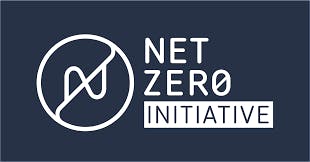
New York GHG Reporting Regulations: Everything you need to know
A practical guide to New York’s new GHG reporting rules – who must report, what data is required, key deadlines, and how the framework compares to other US regulations.
The Net Zero Initiative helps companies and organizations find a way to get the most out of their decarbonizing efforts, with the goal of achieving global carbon neutrality. In short, Net Zero means lowering greenhouse gas emissions to as close to zero as possible and accounting for the remaining emissions by way of carbon offsetting projects.

Global Net Zero refers to the state in which the total amount of greenhouse gases (GHGs) emitted by human activities worldwide is balanced by the amount removed from the atmosphere. While it is possible to strive towards contributing to reaching this global goal, no company or individual can ever claim to have reached net-zero. Yet, some companies claim they reached so-called ‘carbon neutrality’.
Carbon neutrality is a closely related concept, often used interchangeably with net zero, but the two terms are not one and the same.
The differences between the two terms are as follows:
Companies can claim to be carbon neutral without really aligning their activities with global Net Zero - for instance, by neglecting to tackle other GHG than CO₂, or by heavily relying on offset instead of reducing their emissions. Carbon neutrality claims are thus increasingly scrutinized and critiqued.
The Net Zero Initiative is a project supported by Carbon4 and the French Ministry for the Ecological Transition, offering a framework or reference for companies to adhere to the principles of Net Zero. Becoming a signatory of the Net Zero Initiative means to reduce one’s emissions as close to zero as possible, and to compensate for remaining emissions through offsetting projects.
How you can strive towards contributing to global Net Zero:
Examples of companies and regions striving towards contributing to Net Zero include:
No, net zero and zero emissions are not the same thing – as zero emissions refers producing no emissions at all, which is virtually impossible for any company, besides regenerative agriculture, to accomplish.
Companies can’t claim to be fully carbon neutral as they can only contribute to the global goal of carbon neutrality, and therefore – cannot achieve that goal on a global stance by themselves, even if they claim to have achieved it by themselves.
A carbon offset will be credible when it is additional, permanent, verifiable, and measurable. In other words, an offset usually wouldn’t occur otherwise without voluntary involvement.
Yes, it is becoming more common for net-zero claims to be regulated – as more regions are introducing guidelines and disclosure rules to prevent misleading claims and greenwashing.
The Paris Agreement calls for global net zero in the second half of the century to limit warming to 1.5–2°C.

